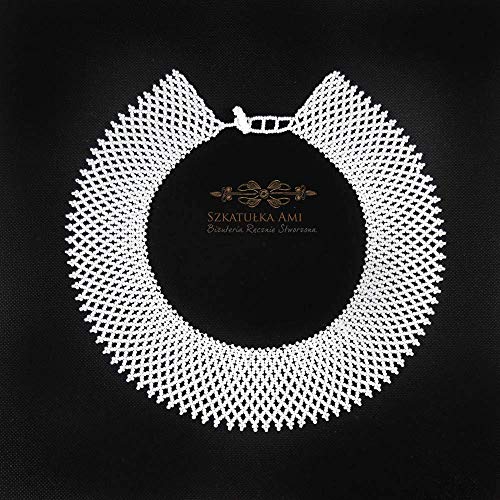
On the Death of “Notorious RBG”
When I entered the tenth grade in Northern Virginia’s Wakefield High School—two miles outside of Washington D.C.—our school had no women’s sports teams. But then Title IX got expanded in a way that gave women the right to equal opportunity in sports in educational institutions that received federal funds. And that included us. So, my Phys Ed teacher invited me and others to play on the inaugural women’s varsity soccer team. And we said yes.
Our team wasn’t so great. And people told us the men’s teams were way more fun to watch. They were right, of course. But sadly, only in the past few years did it dawn on me why the men were so much better. Duh. We women had never even played soccer other than in P.E. before someone handed us varsity-team uniforms. Of course we stunk. That’s not to say we lost all our games…the teams we played were equally pitiful. We all made so. many. errors. But then, a lot of the guys had been playing in leagues since they were eight years old. Plus, our coaches were learning on the job, too. (Some of the guys in our school were, I have to say, pretty great about it, though. My locker got decorated on game days—just like those of the men’s varsity football players.)
This week our world mourned the death of Ruth Bader Ginsberg, a woman who fought not only for the kinds of laws that made it possible for people like me to play varsity soccer but for women to have financial lives without male supervision and also for men to get caregiver benefits. She didn’t just fight for women’s equality. She fought for equality on the basis of sex.
RBG was sixty years old when President Clinton appointed her to the Supreme Court. Most people are starting to think about retiring at 60. She could have done five years and left honorably. Heck, by the time she got appointed, she had already worked on hundreds of cases that made life more just for a lot of people. But after that appointment, she put in another 27 years of public service for her country.
Now then, the minute I say something positive about her, people get itchy. On Twitter, I heard “How can you hold up as an example of Christian femininity someone who contributed to millions of babies being murdered?”
So even though I don’t like dignifying such questions with answers, perhaps this is a teachable moment. So here goes.
First of all, I didn’t mention her faith at all. But since someone else brought it up, I will say that she was Jewish, like the Savior I worship. And Jewish history and the Holocaust fueled her quest for justice. An article about her in The Washington Post began this way: “A phrase from the Book of Deuteronomy hangs framed on the wall of Ruth Bader Ginsburg’s Supreme Court chamber: ‘Justice, justice you shall pursue.’”
Second, I did not mention her as a “feminine” role model—but I certainly could have done so. In a 2009 interview with The Washington Post, she explained how her lace collar collection originated: “‘You know, the standard robe is made for a man because it has a place for the shirt to show, and the tie,’ Justice Ginsburg told the paper. So she and Sandra Day O’Connor, the first female Justice on the court, ‘thought it would be appropriate if we included as part of our robe something typical of a woman.’ They weren’t going to obscure their sex, or pretend it was beside the point. It was part of the point.” If you open your door on Halloween this year and see girls wearing black regalia with lace collars, that’s why.
Additionally, her marriage to her husband, “Marty,” a top-tier tax lawyer, was a true partnership. He was committed to her thriving, and vice versa. TIME reported that “Martin Ginsburg’s vehement support of his wife held so strong that he presented her with one of his cases: a tax case concerning gender discrimination against a man. The Ginsburgs argued the case, Moritz v. Commissioner, together, in 1972, marking the first big win for Ruth.” On an international flight last year, I had watched the fascinating documentary about her (“RBG”), and later my husband and I watched together the film about her (“On the Basis of Sex”). And we came away inspired by their oneness.
Many in our culture know these things about her, because she has been a cultural icon and in inspiration. There are things I dislike, which I will mention shortly only in order to clarify my point. But hear me out on the positive stuff first.
I remember a day when a male employee could pinch my back side in the elevator at the office where I worked to put my husband through seminary. I know of abused women who—before RBG and friends took on financial laws skewed against women—endured abusive husbands taking their checkbooks to prevent them from taking the kids and running. These same women were sometimes barred from applying for credit cards without a husband’s signature—though a husband could buy a car without his wife if he wanted to. It wasn’t fair.
The credit laws also made it harder for a single mom to carry a child to term and raise it alone. The laws about money and health privacy and pregnancy were skewed against women. And so was public opinion. I remember conservatives saying pregnancy leave should not exist because women shouldn’t work in the first place. There was a married woman in my sphere of influence who didn’t want to get an abortion, but her crushing poverty was a deciding factor for her.
I despise abortion. I have spent decades fighting it. Whether sitting on boards that advised NIH about embryo experimentation. Or in my novels. Or my non-fiction articles and books. Helping infertile couples navigate IVF in a way that honors life. Donating to Pregnancy Resource Centers. Helping a medical doctor author a pregnancy book especially for unwed moms….
But even though RBG and I differed on abortion, that doesn’t mean I should be blind to the good in her legacy.
My example in this is the apostle Paul in Athens. Standing on Mars Hill with the Parthenon in view, he did not say to people who worshipped many gods: “You polytheistic pagans! You will go to hell!” Instead, he said something quite loving: “I perceive you are religious.” Plus, he quoted a line reputedly applied to Zeus. A Jewish man quoting an invocation to pagan Zeus? Yes. He did. He said: “For ‘in him we live and move and have our being’; as even some of your own poets have said, ‘For we too are his offspring” (see Acts 17:28). How winsome! Paul was enough in touch with first-century Athenian culture to quote their own poets—even as they were praising Zeus—finding what is lovely. And that perspective had positive effects for the gospel spreading.
If I were an Athenian and someone who thought so completely differently from me was able to find a point of agreement—rather than emphasizing only what he hated in my thinking—I might want to know more. Thinking on what is true, right, lovely, of good repute, worthy of praise—this is to be part of our character and our witness. This is like the Savior who is full of grace.
RBG and I differed greatly on some really important stuff. But at a time when we mourn what we have lost in her death, I find it repulsive to qualify my praise for her legacy with “of course, I disagreed with her on these points….” I do so only so the reader will hopefully better understand.
On a typical day we can quote Thomas Jefferson without feeling obligated to add “even though he fathered a child with a slave he owned.” We can appreciate what Alexander Hamilton did for America without always listing all his indiscretions. Most people I know feel free to quote Augustine and Bonaventure and John Knox without always qualifying that these men said some awful things about women. May I quote Barth without having to say I know he was neo-orthodox or N. T. Wright without saying where we think differently?
Often qualifying may be relevant. Vetting someone for the bench or critiquing their platforms for analysis has its place. In fact, we have a duty to hold leaders to account.
But when people are reflecting on the life and legacy of a person who has just died, it is altogether different. Today is the latter. Highlighting the beauty of a life so full of good things is more than just good manners. It’s character and it’s wisdom. And it reflects on our faith.





One Comment
Pingback: